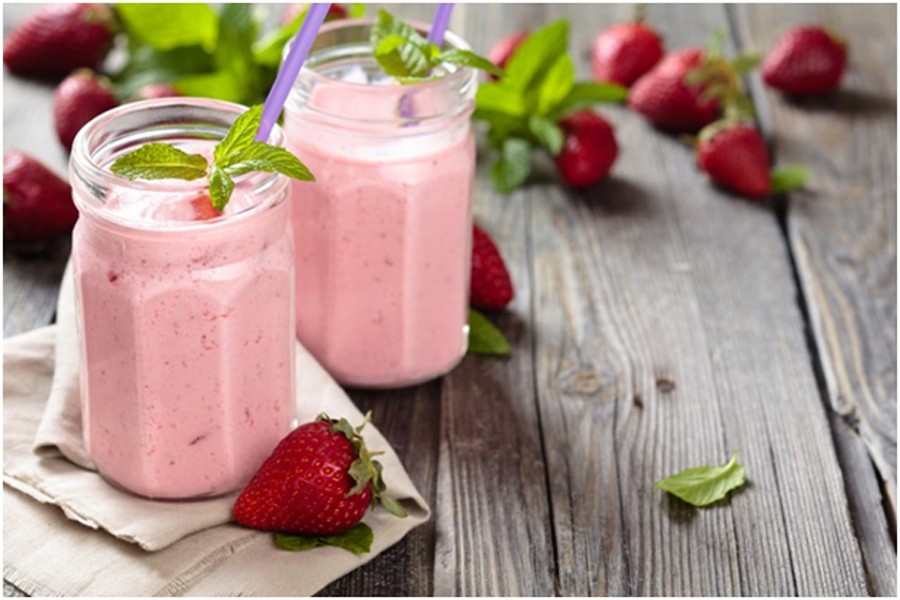“My elderly mother isn’t eating and she has lost a lot of weight. Should I give her a nutrition supplement drink to replace the meals she should be eating?”
Under-nutrition due to lack of eating is a common and dangerous problem among seniors. Being underweight and malnourished can lead to higher mortality rates, according to a study published in the American Journal of Clinical Nutrition.
Geriatricians take weight loss very seriously and caregivers should, too. Family members may be at a loss when it comes to enticing a loved one to eat more or at all, and many resort to using nutrition supplement drinks, such as Boost, in lieu of meals. According to Dr. Amy Ehrlich, Associate Professor of Clinical Medicine and Interim Division Head of Montefiore Medical Center’s Geriatrics Division, it is a common misconception that these drinks are a complete source of nutrition.
How to Use Nutrition Drinks Properly
When elders lose their appetites, caregivers typically offer countless preparations of “real” foods to try to revive their interest in eating and provide them with the fuel their bodies need. All too often, this does not work, so the last resort is sweet, easily digestible nutrition shakes. However, these products are not intended to replace all of a person’s meals.
“Just giving a senior a can of Ensure for dinner isn’t enough,” Dr. Ehrlich says. “It is always better to try to use regular food to maintain a person’s weight.” If a caregiver wants to use these products, then use them between meals as a snack or supplement to add calories and nutrients to the senior’s diet, not as a meal replacement. If you are starting to rely solely on these kinds of drinks or shakes, it is crucial to speak with your loved one’s doctor or a dietitian.
YOU MAY ALSO LIKE
Free AgingCare Guides
Determine the Cause of a Senior’s Dwindling Appetite
Weight loss is a marker of frailty, but it is not a normal part of aging. Dr. Ehrlich stresses that it is critical to find out what is causing the senior’s loss of interest in food. Their doctor should conduct a detailed medical evaluation to determine the root of the issue. “There are a variety of conditions that could be the culprit: ulcers, thyroid disease, dementia, dysphagia, depression, dulled senses of smell and taste, even ill-fitting dentures. All of these causes are either treatable or can be accommodated. Rather than immediately turning to a supplement, work with your doctor to address the underlying problem,” Dr. Ehrlich says.
Read: Why Seniors Refuse to Eat and What You Can Do About It
If it is determined that a nutrition drink is right for the senior, it is still important to consult their doctor when deciding what type of supplement to use. For example, diabetics must choose a low-sugar product like Glucerna to avoid blood sugar spikes.
The Elderly Have Different Nutrition Requirements
A low-fat, low-calorie diet is recommended for the general population, but the opposite is recommended for seniors—especially those who are frail or losing weight. “Sometimes I’ll see patients in their eighties and nineties who are losing weight and still restricting their calorie and fat intake. In many cases, it would actually be better for them to just eat a bowl of ice cream!” urges Dr. Ehrlich.
Read: Daily Dietary Guidelines for Individuals Age 51 and Older
Elders who have experienced weight loss should eat what they like, within reason. Don’t be afraid to incorporate eggs, cheese, peanut butter, and even ice cream into their diet. There is no need for low-fat dairy products. If foods in liquid form are easier for them to consume, try making your own healthy smoothies or shakes with wholesome, fresh ingredients. It is easy to “hide” high-calorie and nutrient-dense foods in smoothies and still have them taste sweet and delicious. Try adding a spoonful of nut butter, half an avocado, or a handful of spinach to a blended drink.
Keep in mind that eating three large meals each day can be overwhelming for seniors. Instead, encourage them to consume smaller, more frequent meals and snacks, even before bedtime. Petite portions are less intimidating for many older individuals.
Nutrition Drinks and Supplements Can Interact with Medications
Lastly, nutrition drinks often contain high (sometimes even excessive) amounts of vitamins and minerals that can cause dangerous drug interactions with a senior’s prescription medications.
Many older individuals take a regimen of prescription and over-the-counter drugs and perhaps vitamins and supplements. This combination may conflict on its own, producing dangerous adverse effects and possibly damaging otherwise functioning organs and systems. Nutritional drinks feature high levels of vitamins and minerals that can add to this mix within the body and cause further problems. For example, an 8-ounce nutritional drink can contain up to 40 percent of a senior’s daily requirement for vitamin K. This sounds healthy, but vitamin K can directly affect the efficacy of blood thinners like Coumadin.
It is important to check with your loved one’s doctor before altering any medications, supplements or diet plans to avoid complications. “I encourage my patients to bring in all their medications, supplements and vitamins so I can check for possible interactions. I call it the ‘brown bag visit,’ ” Dr. Ehrlich says.
The bottom line is that nutrition drinks are a not a magic fix for lack of eating or undernutrition. These products are not bad when used as a dietary aid and supplement to regular meals. However, they should not be used as meal replacements for elders. Consult with your loved one’s doctor and/or a dietitian to address the underlying causes of their weight loss and develop a safe and healthy eating program.
Source: https://www.agingcare.com/articles/nutritional-drinks-seniors-elderly-problems-139710.htm

